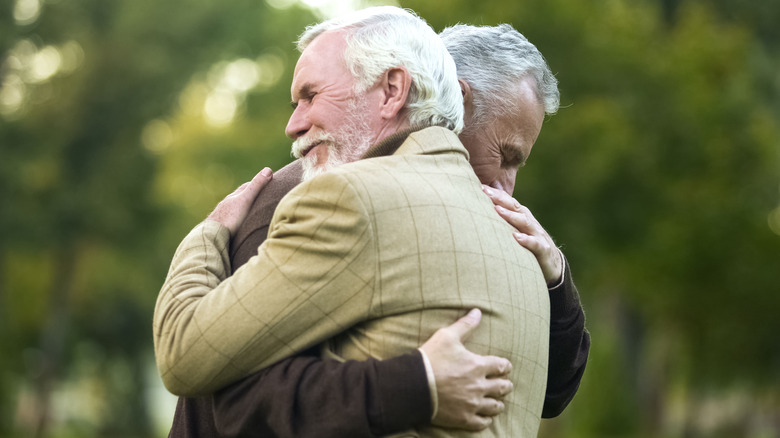Reaching out to old friends is an act of vulnerability. Putting ourselves out there leaves us open to the potential for rejection. As a result, we may shy away from reaching out at all. Hope Arnold, a licensed clinical social worker, writes via RO DBT Denver that patients often communicate fears of interrupting the other person, being an inconvenience, or assuming the person is too busy to interact.
However, a new study published in the Journal of Personality and Social Psychology: Interpersonal Relations and Group Processes shows that people who receive a “check-in” message out of the blue often appreciate it far more than the sender may realize. These new findings support previous research suggesting that rekindling old connections may have mental health benefits to offer as well. A 2024 study published in the Journal of Applied Psychology found that during the COVID-19 pandemic, the majority of people who reached out to friends and family whom they hadn’t spoken to for some time reported increased feelings of happiness and lower levels of stress (per Psychology Today). Dr. Joe Labianca, who worked on the study, wrote for Psychology Today, “One way to escape [stress] is to reconnect with old friends and family—people you haven’t spoken with in many years—even if it’s just over a video call.”
Consider sending a friendly text message

In the new large-scale study, researchers divided participants into two groups: initiator or responder. The first experiment was designed to gauge the initiators’ preconceived notions about how an old friend of theirs would feel about an unexpected electronic “reach-out” message. Data was also gathered in regards to how appreciative responders felt the last time an old friend had reached out to them. Survey responses revealed that initiators underestimated how much a check-in message would be appreciated by their friend, while responders reported feeling higher levels of appreciation.
As defined by the research, a reach-out message was considered an unprompted message containing content along the lines of “thinking of you,” versus asking for a favor or offering someone a compliment. The study team pointed out, however, that further studies are needed regarding whether reaching out to a person associated with negative memories from our past would elicit different effects on one’s mental health.
Overall however, the research shows that reaching out to old friends whom we remember fondly may have the potential to boost our own emotional well-being, as well as the well-being of others. Lead author on the new study Dr. Peggy Liu reinforces this notion, telling Healthline, “I think people often hesitate to reach out for various reasons, which can include not fully understanding the benefits of reaching out. I hope our research removes one of those barriers — people likely will appreciate you reaching out more than you expect.”




